|
.
1 | Music In The Age of Enlightenment
Cultural Background
Peter
Kun Frary
.
The Age of Enlightenment in eighteenth century Europe marks the dawn of the late modern period in world history. The American Revolutionary War, 1775–83, and French Revolution, 1789–99, were milestones of the time. The last shogunate ruled Tokugawa era (1603–1867) Japan, and the Mughal Empire governed much of India. In 1778 James Cook (1728–79) landed on Kauaʻi and American statesman Benjamin Franklin (1706-1790) negotiated a pivotable alliance with the French. In European music, this period, 1750 to 1820, is called the Classical Era.
Paris et Helene | Jacques-Louis David, 1748-1825 | Classical art was inspired by ancient Greece and Rome. | Louvre Museum | Photo, ©Peter Kun Frary
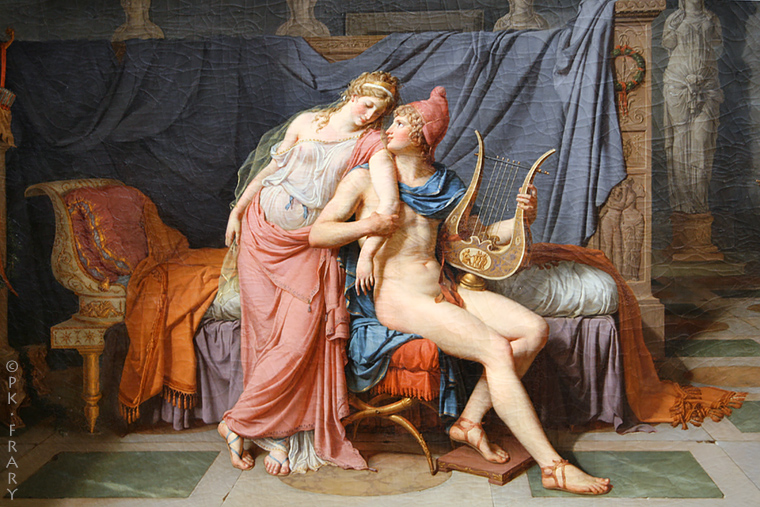
 Classical Music Definition Classical Music Definition
The term, classical music, is often used by layman to refer to music that is not pop, rock, folk, jazz, country, hip-hop, K-pop, World Beat, etc. However, strictly speaking, classical music refers to European art music written between 1750 and 1820, and corresponding to a period of classicism in art and architecture.
To put classical music in context, we'll begin by surveying the basics of eighteenth century culture.
 The Enlightenment The Enlightenment
The most important intellectual movement of the eighteenth century was the Enlightenment: a European philosophy that questioned traditional values and doctrines, and valued reason and individualism over faith and tradition. It was influenced by seventeenth-century philosophers such as Descartes, Locke, and Newton, and championed by Benjamin Franklin, Johann Wolfgang von Goethe, Voltaire, Jean-Jacques Rousseau, and Adam Smith.
Declaration of Independence | John Trumbull (1756-1843) | The American Revolution was influenced by the Enlightenment. | Wikimedia Commons
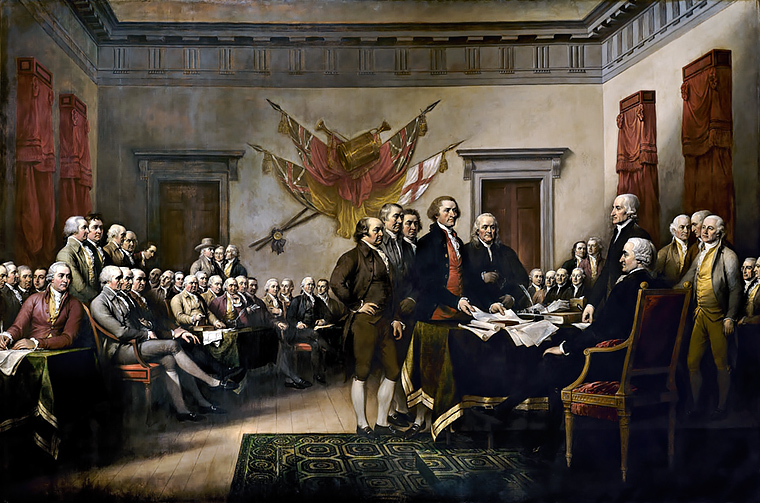
Enlightenment proponents preached individualism, universal human progress, religious tolerance, separation of church and state, public education, the scientific method, and free use of reason. These principles shaped the French and American revolutions. Emerging civil rights and questioning of class privilege undermined monarchies and lead to parliamentary reforms and democratic governments in Europe and the Americas.
 Global Age Global Age
The Classical Era heralded the arrival of an increasingly cosmopolitan and global society. In Europe, monarchs were crowned outside of their homelands: German kings in England, Sweden and Poland, and a Spanish king in Naples. National and class differences became less pronounced due to increased travel, trade and intense colonization in Asia, Africa and the Americas.
Diana and Cupid | Pompeo Batoni (1708-1787) | Metropolitan Museum of Art
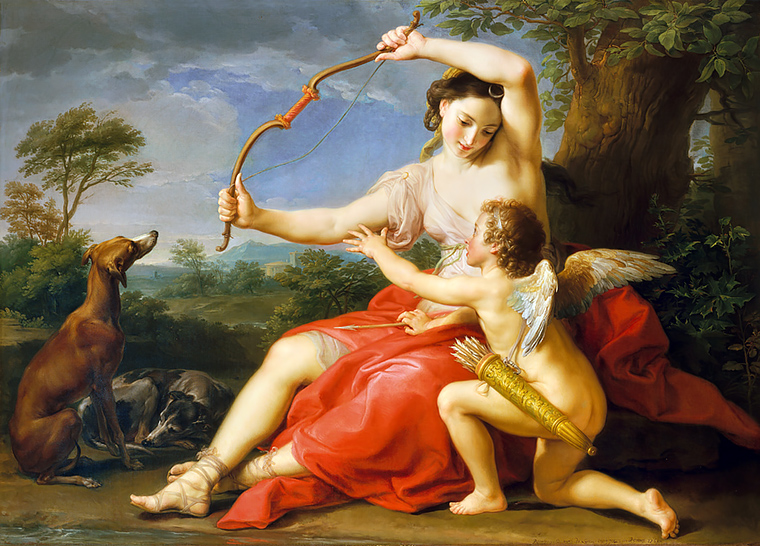
 Patronage and Political Power Patronage and Political Power
Eighteenth century Europe was characterized by the rise of monarchies with a strong centralized rule. Thus, smaller courts diminished in political and cultural influence except in northern Europe. German and Austrian courts had some independence, especially in artistic and social matters. These courts competed against one another with artistic and social rivalries.
Aristocratic patronage and, to a lesser extent, church patronage of musicians, dominated early eighteenth century Europe. By the end of the century, aristocratic power and cultural influence were in decline. Church patronage of music all but disappeared during the Classical era. As the nineteenth century dawned, the growing bourgeois or middle class largely replaced royal and church patronage through marketing of concert tickets and publication of sheet music.
Parthenon | Frederic Edwin Church (1826–1900) | The Greek Parthenon (c. 447 BCE) influenced neoclassical architecture designs of this era, especially government buildings. | Metropolitan Museum of Art
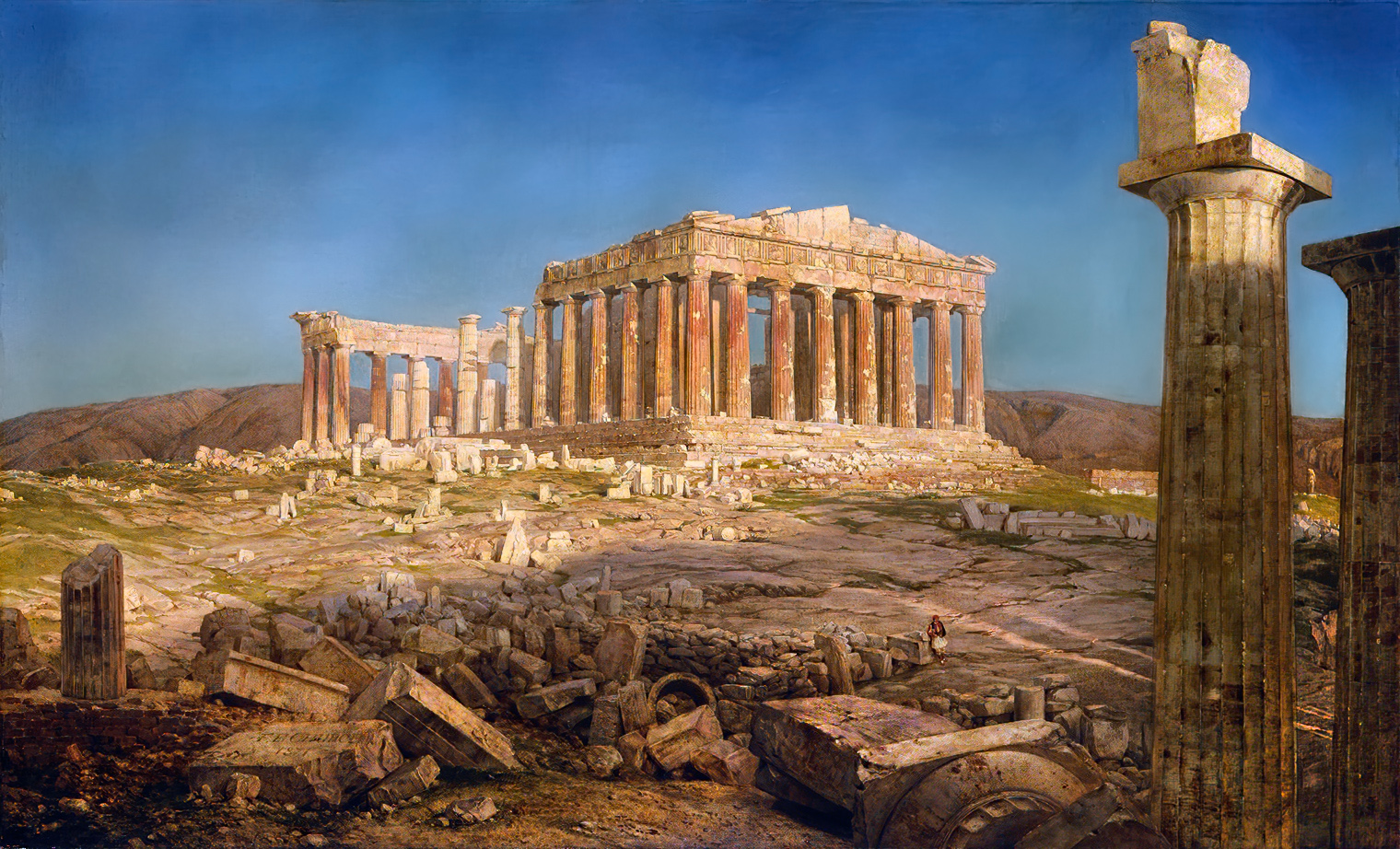
 Popularization of Music Popularization of Music
The Enlightenment imbued the growing middle class with dreams of equality. Indeed, it was believed that everybody should be enriched by the arts, not just aristocrats. Thus, eighteenth century comic opera was performed in public theaters using native tongues and spoken dialogue with stories about ordinary folk, rather than foreign tongues in private theaters with stories about kings and gods.
Eventually the middle class market undermined noble patronage and musicians began to cater to popular taste. Composers learned to meet audiences on their own terms since the tastes of the connoisseur were not valid for the middle class.
Scène de carnaval, ou Le Menuet | Giovanni Domenico Tiepolo, 1727-1804 | Metropolitan Museum of Art
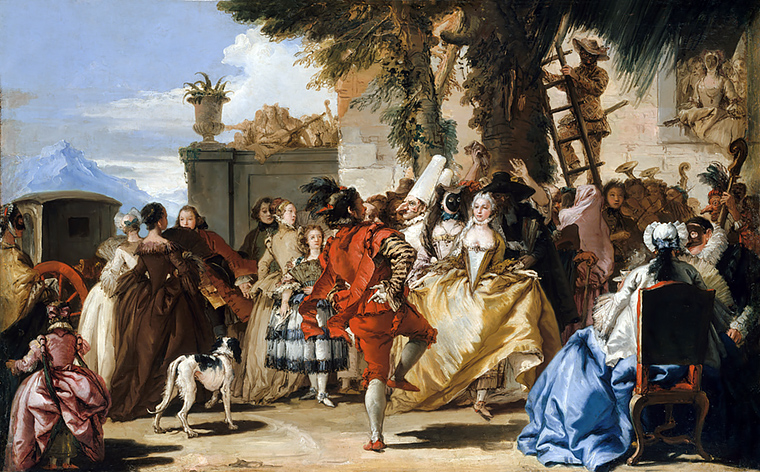
 Role of Music Role of Music
With the rise of the middle class, music was mainly about public entertainment. The masses preferred elegant spectacles such as opera, symphony, concerto, and ballet. Social dance music was also an important market for musicians.
Although patronage of cultured aristocrats was in decline, a market for intimate and sophisticated salon or drawing room music still existed, especially solo song, piano solo and chamber music.
The Music Party | Louis-Rolland Trinquesse, 1746-1800 | Home music making was essential to eighteenth century culture | Alte Pinakothek | ©Peter Kun Frary
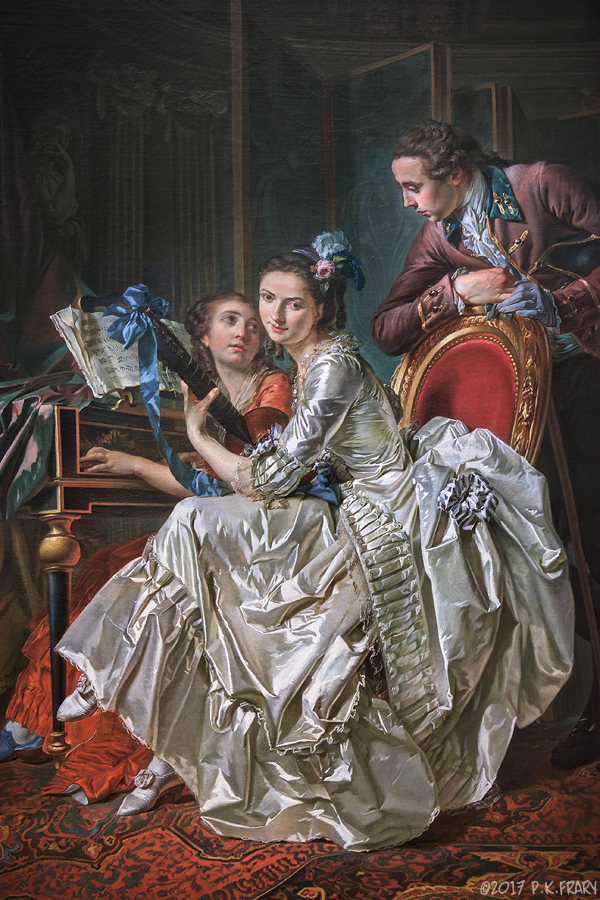
 Music Publishing Music Publishing
Home music making was an important hobby and status symbol for both the middle class and aristocrat. Subsequently, there was a burgeoning demand for printed music for amateur performance of piano and guitar solos, solo songs and chamber music. Sheet sales fulfilled a similar niche as modern sales of CDs, LPs, streaming and downloads. Here's a taste of music written for the typical bourgeois home:
Andante from Duo Opus 55, No. 3 | Fernando Sor, 1778-1839
Vocabulary
Classical Era, Enlightenment
©Copyright 2018-25 by Peter Kun Frary | All Rights Reserved
|



